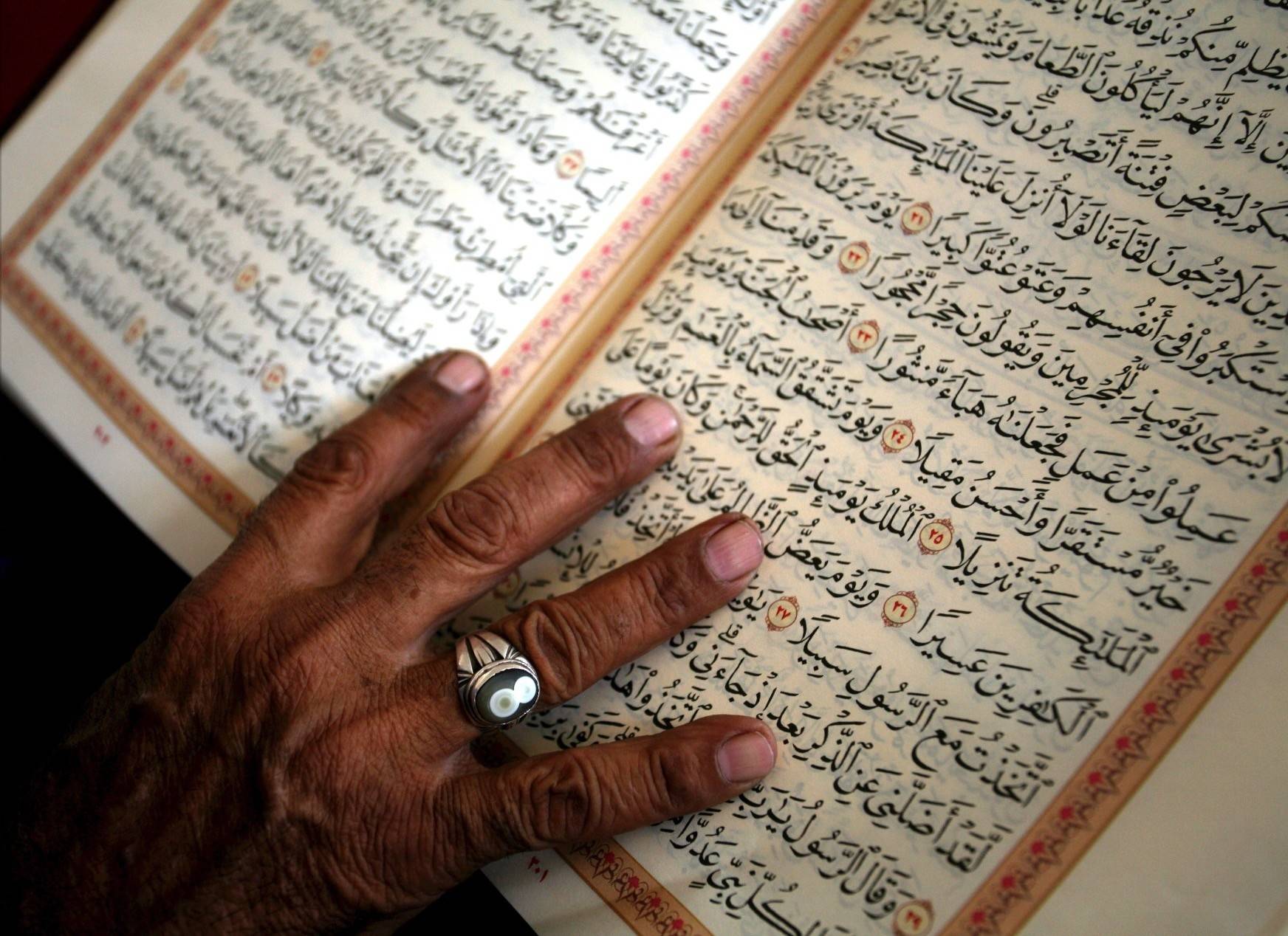Fun Facts About The Quran

The Quran is popularly considered by Muslims as the holiest book on earth. According to muslims all over the world, the Quran is direct verbal revelation given by God to his prophets. That is how it is believed to have come about.
The Holy Book of Quran is to muslims what the Holy Bible is to christians, so in this article we would be compiling some fun facts about the Quran you most likely do not know about even if you are a muslim. Some of these fun facts about the Quran would be absolutely new to most people who aren’t muslims while being nothing new to muslims that have studied their holy book very well.
A quick interesting fact about the Quran is that according to muslims, the Quran is so holy it is even considered to be equivalent to God himself, which explains the reason muslims all over the world hold the Quran to a very high esteem. There are much more fascinating Quran facts that we have compiled in this article to get you enlightened, all you have to do to learn these Quran facts is to scroll down and keep reading.
Fun Facts About The Quran
- The Quran is regarded by Muslims as the word of God as revealed to the prophet Muhammad by the archangel Gabriel.
- The Quran is considered infallible by orthodox Muslims.
- Muhammad reportedly received a visit from the angel Gabriel in 610 AD, when he was 40 years old, and was given three requests to recite. Muhammad received the first revelation of what would eventually become the Quran when he questioned what he should say. The final 23 years of Muhammad’s life were marked by sporadic revelations.
- The Arabic term al-Qur’an, which means “the reading” or “the recitation,” is used.
- The “shari’a,” or “holy law,” comprises the Quran and the Hadiths collectively.
- Muhammad’s adherents held that everything he said and did, in addition to the Quran, was inspired by God. It is believed that the Quran itself is more important than the “Hadiths,” which are accounts of his words and deeds.
- In the Islamic world, judges only interpret the laws established by the Quran and Hadiths, not by legislative bodies as is the case in most legal systems.
- An important factor in determining the difference between a Quranic revelation and a Hadith is whether or not Muhammad experienced any physical changes at the time of the revelation. He was believed to be speaking God’s word exactly as he had heard it from the angel Gabrie unless he appeared to be doing something different.
- The Quran and Hadiths are the only sources of legal authority in the Islamic world; judges only serve as interpreters. This is in contrast to most legal systems, which create laws through legislative bodies.
- Muhammad supposedly lacked literacy, according to tradition. To his adherents, he recited verses from the Qur’an, which they would then write down.
- 114 chapters, or surats, make up the entire Quran. Instead of being organized in the order that Muhammad first recited the chapters, Muhammad rearranged them after they had all been recorded on paper.
- Dr. Amina Wadud proposed a forgiving reinterpretation of the Quran from a feminine perspective in her 1992 publication The Qur’an and Woman.
- The longer revelations are typically found at the beginning of the Quran and the shorter ones towards the end, although no one is certain why Muhammad arranged them in the order he did.
- Quran was spelled “Koran” in the nineteenth century. Some people continue to use “Quran” even though “Qur’an” is the proper transliteration because apostrophes are not typically used in the middle of English words.
- Muslims do not regard translations of the Quran into other languages as the complete or authentic Quran because they do not respect the sacredness of the original Arabic words in which it was revealed.
- Surprisingly, the Quran omits both the instructions for observing the Ramadan fast as well as the words of the five daily prayers recited by devoted Muslims.
- Muslims view everything the Prophet Muhammad said or did as part of “scripture,” which extends beyond the Quran.
- A well-known Muslim leader assembled a committee of Muslims who had memorized the entire Quran during the time of the prophet to compare what had been collected with what they had learned.
- The paper on which a Quran is written, the letters of the Arabic words on the page, and even the sounds that are made when reading the Quran aloud are all regarded as holy.
- Before they even touch a copy of the Quran, Muslims will typically go through the ritual cleansing ablutions first.
- The way the Quran should be recited is dictated by tradition that dates back to Muhammad’s lifetime, including when to pause or use particular intonations for particular words.
- Since the Quran had such a significant impact on spoken Arabic for centuries, many schools refer to classical Arabic as “Quranic Arabic.”
- Also believed to have ta’wil, or hidden meanings, that convey metaphysical and cosmological truths, are the individual words and letters of the Quran.
- During a solitary retreat he made into the desert to fast and pray, Muhammad claimed to have received his first Quranic revelation.
- Twenty years after Muhammad’s passing, when all of his revelations were collected, the Quran was finally completed.
- One can distinguish between revelations that came to Muhammad while he was still living in Mecca and revelations that came to him after he moved to Medina.
- In contrast to the tribal or ethnic gods that Muhammad’s contemporaries worshipped, the Quran refers to God as “Allah,” emphasizing the supreme Divinity.
- Before they turned seven, male Muslim children frequently memorized the entire Quran throughout the history of Islam.
- The Quran divides its verses into surats based on the rhythm of the spoken words rather than on the structure of sentences.
- In contrast to everything else in the universe, which was created, the Quran is eternal and uncreated, according to orthodox Islamic doctrine.
- Numerous words or images within that revelation that surprised the listeners are used as the basis for the titles of the individual chapters (surats) of the Quran. This explains why certain titles, like “The Cow,” “He Frowned,” or “Iron” make sense.
- Muhammad’s demise left his followers unsure of what to do because the Quran taught that all issues pertaining to how to live a chaste life would be resolved by the word of revelation given through Muhammad. The conflict over who would have the right to interpret God’s word that resulted laid the groundwork for the separation of Sunni and Shi’ite Muslims.
- Islam does not have a formal priesthood, so those who are knowledgeable about the sayings and deeds of the Prophet Muhammad and have access to a lineage of teachers who are believed to date back to the Prophet’s lifetime interpret the Quran.
- Pork consumption is prohibited by the Quran in verse 6:145, but it is permitted in certain circumstances according to verse 2:173.
- Although the Quran exhorts Muslims to use reason in order to comprehend the world, it also warns against overly relying on reason when it comes to matters pertaining to God. A Muslim should prioritize the teachings of the Quran over their own beliefs.
- In addition to revelations on universal ethics and metaphysics, the Quran also contains God’s practical advice to Muhammad on matters that are current and urgent, such as when the community should prepare for battle or what to do with captured prisoners.
- Initially, Muslims would offer their five daily prayers while facing Jerusalem; however, in what would become the second chapter of the Quran, the direction was changed to be toward Mecca, and that’s how it has remained ever since.
- The majority of the Quran deals with very broad topics, such as promoting faith in God, promising heaven to those who follow Him, discouraging sin, and threatening judgment and hell for the unrepentant. The stricter customs and rituals of a Muslim’s religious life are derived from tradition rather than the teachings of the Quran.
- When deciding what a Muslim should or shouldn’t do, Islamic scholars and judges first looked to the Quran; if that didn’t have the answer, they then looked to the Hadiths (sayings and deeds of the Prophet Muhammad as recorded by his contemporaries); if those didn’t hold the answer, then they applied analogical reasoning based on Quranic or Hadith sources; if that failed, then they consulted the community to seek a consensus; only
- In the Medieval era, aristocrats offered financial payments to philosophers and scholars, to collect and translate books from Indian, Greek and Persian philosophy and religion into the Arabic language.
That’s all the fun facts about the Quran there is on this article. As earlier stated, some of these facts about the Quran might be new to the none muslims while being old or well known to the muslims, there are still facts we weren’t able to include due to their nature. These facts would be revealed in the following section answering frequently asked questions about quran facts.
FAQs About Quran Facts
What is unique about the Quran?
The unique thing about the Quran is that the Quran is believed to be so holy it is considered to be equivalent to God himself.
What is the Quran facts for kids?
Some Quran facts for kids are;
- Quran is the holiest book for muslims.
- No human speech can match the Quran.
- The Quran is Gods(Allah) words directly from him.
These are many facts are Quranic facts for kids.
Why Quran is a miracle?
The Quran is considered to be a miracle because it is believed to be Gods direct words delivered to the prophets through Archangel Gabriel.
Is Quran older than the Bible?
No, the Bible is much older than the Quran. This is evidenced by the presence of some Bible verses being found in the Quran and the Quran also referencing some Biblical characters and stories.
Has the Quran been changed?
No, the Quran has not been changed and cannot be changed due to the nature of the book being considered to be God’s(Allah) words which can never change.
How old is the first Quran?
The oldest Quran ever discovered was examined to be over 1,370 years old.

